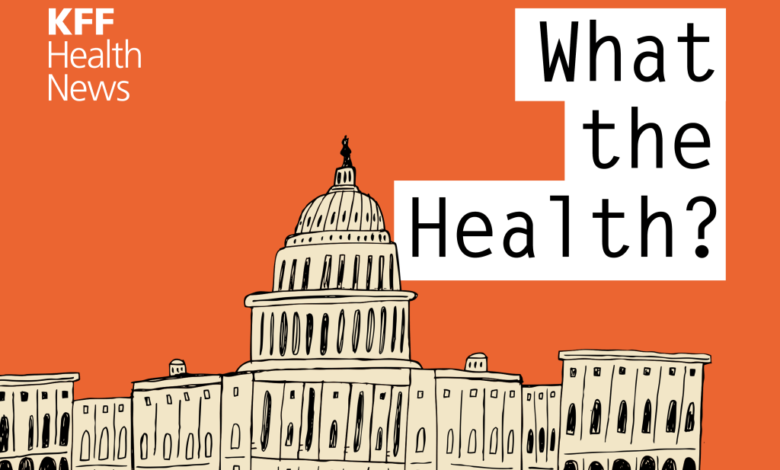KFF Health News’ ‘What the Health?’: Nursing Home Staffing Rules Prompt Pushback

The Host
It’s not surprising that the nursing home industry is filing lawsuits to block new Biden administration rules requiring minimum staffing at facilities that accept federal dollars. What is slightly surprising is the pushback against the rules from members of Congress. Lawmakers don’t appear to have the votes to disapprove the rule, but they might be able to force a floor vote, which could be embarrassing for the administration.
Meanwhile, Senate Democrats aim to force Republicans who proclaim support for contraceptive access to vote for a bill guaranteeing it, which all but a handful have refused to do.
This week’s panelists are Julie Rovner of KFF Health News, Rachel Cohrs Zhang of Stat, Alice Miranda Ollstein of Politico, and Sandhya Raman of CQ Roll Call.
Panelists
Among the takeaways from this week’s episode:
- In suing to block the Biden administration’s staffing rules, the nursing home industry is arguing that the Centers for Medicare & Medicaid Services lacks the authority to implement the requirements and that the rules, if enforced, could force many facilities to downsize or close.
- Anthony Fauci, the retired director of the National Institute of Allergy and Infectious Diseases and the man who advised both Presidents Donald Trump and Joe Biden on the covid-19 pandemic, testified this week before the congressional committee charged with reviewing the government’s pandemic response. Fauci, the subject of many conspiracy theories, pushed back hard, particularly on the charge that he covered up evidence that the pandemic began because dangerous microbes escaped from a lab in China partly funded by the National Institutes of Health.
- A giant inflatable intrauterine device was positioned near Union Station in Washington, D.C., marking what seemed to be “Contraceptive Week” on Capitol Hill. Republican senators blocked an effort by Senate Majority Leader Chuck Schumer to force a vote on consideration of legislation to codify the federal right to contraception. Immediately after, Schumer announced a vote for next week on codifying access to in vitro fertilization services.
- Hospitals in London appear to be the latest, high-profile cyberattack victims, raising the question of whether it might be time for some sort of international cybercrime-fighting agency. In the United States, health systems and government officials are still in the very early stages of tackling the problem, and it is not clear whether Congress or the administration will take the lead.
- An FDA advisory panel this week recommended against the formal approval of MDMA, a psychedelic also known as ecstasy, to treat post-traumatic stress disorder. Members of the panel said there was not enough evidence to recommend its use. But the discussion did provide more guidance about what companies need to present in terms of trials and evidence to make their argument for approval more feasible.
Also this week, Rovner interviews KFF Health News’ Bram Sable-Smith, who reported and wrote the latest KFF Health News-NPR “Bill of the Month” feature about a free cruise that turned out to be anything but. If you have an outrageous or baffling bill you’d like to send us, you can do that here.
Email Sign-Up
Subscribe to KFF Health News’ free Morning Briefing.
Plus, for “extra credit,” the panelists suggest health policy stories they read this week that they think you should read, too:
- Julie Rovner: Abortion, Every Day’s “EXCLUSIVE: Health Data Breach at America’s Largest Crisis Pregnancy Org,” by Jessica Valenti.
- Alice Miranda Ollstein: The Washington Post’s “Conservative Attacks on Birth Control Could Threaten Access,” by Lauren Weber.
- Rachel Cohrs Zhang: ProPublica’s “This Mississippi Hospital Transfers Some Patients to Jail to Await Mental Health Treatment,” by Isabelle Taft, Mississippi Today.
- Sandhya Raman: Air Mail’s “Roanoke’s Requiem,” by Clara Molot.
Credits
To hear all our podcasts, click here.
And subscribe to KFF Health News’ “What the Health?” on Spotify, Apple Podcasts, Pocket Casts, or wherever you listen to podcasts.



